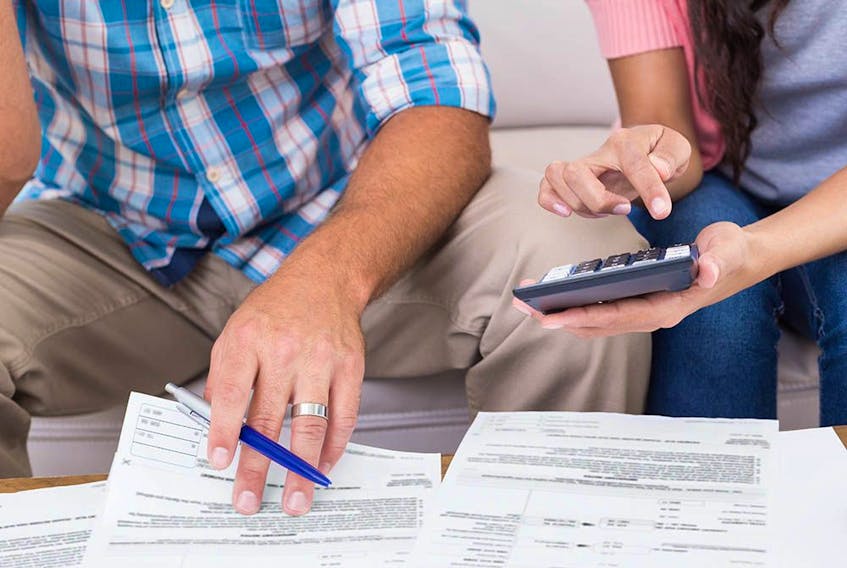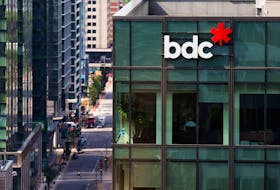Q: I got into debt about a year ago and haven’t had the chance to do much about it since. I was out of the country taking care of my dad in his last weeks when the pandemic started, and then it took a few months before I could get any flights home. By the time I got back my job was gone and I had a lot of extra bills to take care of. I applied for CERB and managed as best I could, but by then my credit cards were all pretty much maxed out. I talked to my bank about a consolidation loan and they said I should qualify for one if I got my internet and electricity bills up to date. Consolidation seems easy enough. Is there anything I should know first? ~Aimee
A: As we recover from the financial impacts of the pandemic, taking stock of where we’re at, looking towards our future, and getting on track with our debts are important steps to take if we want to regain financial stability. One way to get back on track if you’re struggling with personal debt from loans, credit cards, overdrafts or lines of credit is to take out a consolidation loan.
A debt consolidation loan is a tool, one that we may have access to depending on our circumstances. And just like any tool, when used correctly it can help us achieve our goals; used incorrectly, however, there’s no telling how much damage could occur. Getting a consolidation loan could put you deeper into debt and make your situation worse, rather than better, if you don’t steer clear of the pitfalls.
Why do you want to consolidate?
There are many reasons why someone might want to consolidate their debts. Often it’s because they either have too many payments to manage or too much debt to deal with. Sometimes it’s because more attractive financing options are available. However, before deciding how to consolidate, you need to think about what got you to the point of needing to. This will help determine your options and best course of action to overcome the limitations that come with debt consolidation.
Less payments to make
Someone with many payments to juggle might simply need a proper paycheque plan so that they know what to pay on which date. With a budget, they could work to get a month ahead and make their payments on the schedule that suits them best. The payments might get made a few weeks early, but that’s typically never an issue.
Too much debt to repay
If you have a lot of payments to juggle and don’t feel like you have the money to make the payments, a budget is definitely your first step before you start exploring consolidation options. Once you know if you can afford all of your payments, that will open up certain options for you. If you realize that you are in over your head, regardless how many or how few payments need to be made each month, that will direct you towards other options. But your budget is the key to determining which options can become solutions.
4-Question Assessment – See Where You Stand
Lower interest rates
For those who want to take advantage of better financing options, for instance lower interest rates, that becomes a factor once you consider your various options – but it all starts with your budget. If you haven’t taken the time to create one, here’s an interactive budget calculator that will take you through the steps to create a budget that works for you and your household.
Lower interest rates are great, but you still need to be able to afford your payments. A budget paired with lower interest rates might even show you that you could maintain the bigger payments that you had been making at the higher rate. This would get you out of debt that much faster.
What’s the best way to consolidate debt?
A debt consolidation loan is one option for consolidating debt, and it’s one of the first many people think of. However, once you know why you want to consolidate and what your budget looks like, you can explore the many debt solutions we have in Canada and find what will work best for you. Some mean consolidating your payments without borrowing more money, some mean borrowing to pay off what you owe and then making one new loan payment, and then there are those options when you can only afford to pay back part of what you owe, or nothing at all. Here’s a table of the most common debt relief options and what to know about each one.
Three limitations of debt consolidation and how to overcome them
Keep in mind that consolidating your debt is just one part of managing your finances more effectively. It takes dedication and diligent effort to get out of debt , so staying out of debt and never having to go through all that stress and pressure again is perhaps even more important. Understanding the limitations of debt consolidation will help you do just that.
1. Consolidating your debts won’t change your spending habits
Simply consolidating what you owe and finding a more efficient way to repay it is not enough to change your spending habits. Our money management habits are built up over many years; a quick signature to restructure your debt isn’t going to change that. It could, in fact, make your spending worse.
Debt consolidation takes the pressure off. It can stop late payment notices and collection calls, high interest charges, or even free up some money in your budget. With the pressure off and a little money to spend, it can be easy to get carried away.
To change your habits after you consolidate debt you need to take concrete steps to not spend as you did before. If you still have credit cards, take them out of your wallet. Set up automatic bill payments through your online banking so that you don’t miss any due dates. Stick to your budget more easily by shopping with cash .
Once you get used to your new reality and feel confident that you have developed new habits, carefully reintroduce the conveniences you miss, like shopping with debit or ordering online with a secured or pre-paid credit card.
2. Consolidating your debts won’t change your savings habits
Most people will show off their new car before they open up their banking app and reveal what’s in their savings account. It’s easy to agree that we should save money, whether for our retirement, an emergency fund or a down payment. But the feeling we get from setting money aside to spend later pales in comparison to thinking about everything we could spend the money on now. Savings isn’t flashy or fun, and just because the pressure is off with your debt payments, that won’t suddenly make you a saver.
Getting into the habit of saving is the single most important thing you can do if you want to avoid facing debt problems again in a few years. To make it easier to save, set goals that are meaningful to you. Make them SMART and incorporate saving for them into your budget. Set up automatic transfers so that as soon as your paycheque is deposited to your bank account, a set dollar amount is withdrawn and moved into savings. Start small if that’s all you can afford and work your way up. Seeing your savings account balance grow will motivate you to stick to your goals because success simply feels good.
How to Keep Your Savings Safe from Yourself
3. Consolidating your debts won’t change how you budget
It can be easy to think if only there were less payments, if only you owed less, if only you had more money, if only your credit were better, if only your situation were different, if only… then it would be easier to budget your money. While there might be truth to some of the reasons, when it comes right down to it, the math behind outlining a budget isn’t hard. But the problem for most people isn’t the math.
We didn’t need to consolidate our debt because we couldn’t calculate our budget accurately; financial problems are seldom that simple. How we choose to manage our money — the goals we set, choices we make, habits we have, as well as how we use credit, our attitudes towards debt, along with lifestyle factors and what we don’t do — the decision-making processes behind managing our money are complex. It is also as much psychological and emotional as it is mathematical. But that’s not to say that becoming better at budgeting is insurmountable. It’s not.
If you want to become better at budgeting, take steps to increase your money skills and level of financial literacy. Read books and blogs, attend free personal finance webinars , become curious about your own habits, try different ways to manage your money, and celebrate your small wins.
Small successes might start with making your coffee/tea at home rather than buying it on your way to work. It might mean making a meal plan and ordering in only once a week. Redeem store loyalty points to treat yourself, rather than splurge instead of paying a bill. Incorporate a little spending money into your budget so that you’ve got some cash in your wallet. Spend it on anything you would like to, or save it for next month. It’s an easy way to reward yourself for sticking to your pre-planned spending choices the rest of the time.
The bottom line on using debt consolidation to improve your finances
Debt consolidation can be a very useful tool to regain the upper hand on your finances. As you narrow down which type of consolidation might work best for you, get guidance from a non-profit credit counsellor to explore your options. Think about your overall financial situation, including your longer-term goals. Some types of consolidation will make it harder to rebuild your credit rating than others. And finally, be sure to consider any non-financial aspects that are contributing to your debt problems because they will have an impact as well.
Related reading:
Top 5 Solutions When You are Declined for a Debt Consolidation Loan
Money Mistakes to Avoid When You’re in Debt
Smart Money Moves to Improve Your Finances in 12 Months
Scott Hannah is president of the Credit Counselling Society, a non-profit organization. For more information about managing your money or debt, contact Scott by email , check nomoredebts.org or call 1-888-527-8999.
Copyright Postmedia Network Inc., 2021








